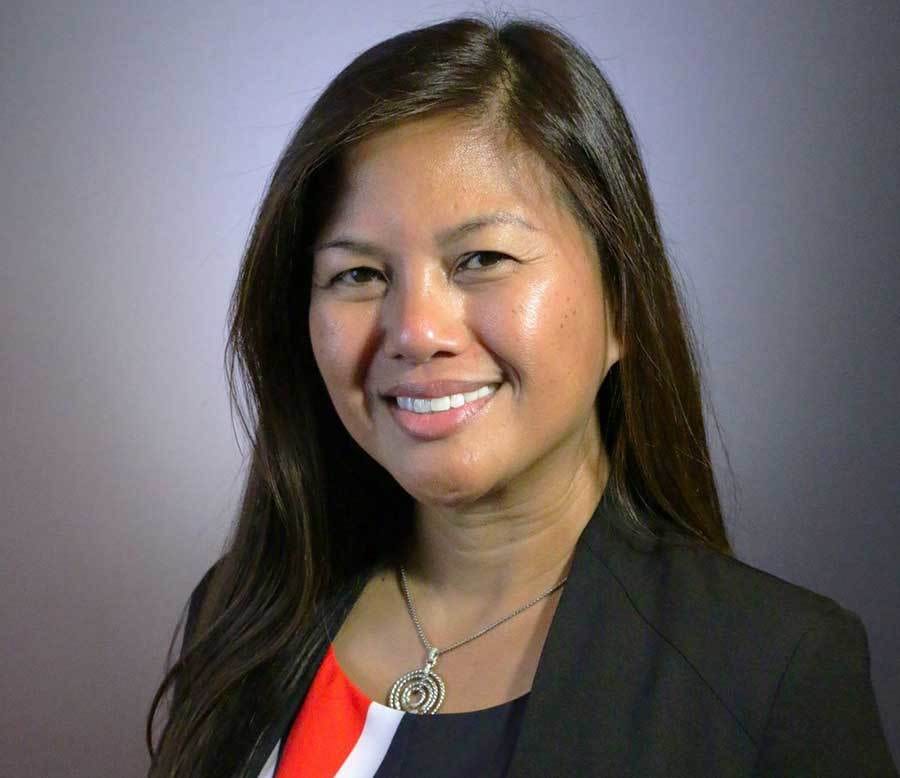
Title: Vice President/Branch Manager, Norman S. Wright – Pacific
Age: 49
Educational Experience: Bachelor's Degree in Mechanical Engineering, Santa Clara University
Professional Credentials/Accreditations: Engineer in Training (EIT)
Marites D. Calad

What caused you to/when did you fall in love with engineering?
I’ve loved math since I was young and have always excelled at it. I always knew I was going to be either an engineer or a math teacher.
What has been the most rewarding aspect of working in the skilled trades?
Understanding how all mechanical components work is incredibly rewarding. Knowing how to analyze a system and determine the functions of each component so we can solve a problem when it arises is fun.
Describe the proudest moment in your career.
Becoming the first female vice president of Norman S. Wright Mechanical Equipment Corp. is the proudest moment in my career.
What challenges do women face in this profession? Can you give a personal example? Why aren’t there more women in engineering? How can we increase the number of women in engineering?
Working in a male-dominated industry is a challenge in itself; competing with men and earning trust and respect from colleagues can be difficult at times. The lack of respect and how much you have to work to prove yourself is daunting.
For example, at a professional meeting, after giving a presentation, a man told me I was good at my job because I wore a skirt. I told him, “Yes, you should try it sometimes.” At a conference, being the only woman in the room, someone asks, “Do you like all of the attention?” We, as women, just have to work harder to prove ourselves.
I believe there aren’t more women in engineering because of several reasons, including the stereotypes that exist. Our schools and society seem to define the professions for women — teacher, nurse, housewife, secretary, administrative assistant, etc. Engineering has always been viewed as a more masculine or male-oriented profession. Oftentimes, women may lack the confidence that they can do the job and exist in this stereotypical world.
We need to start encouraging young girls to look into engineering. Women engineers need to mentor young girls and expose them to the endless possibilities in engineering.
What does your day-to-day job entail?
My day typically starts at 5 a.m. First, I go through emails on my phone, problem-solving, reviewing billings/financials, doing project reviews, connecting with factories and customers, planning future company events, and creating marketing materials. I also aim to dedicate at least an hour to ASHRAE.
What drives/motivates you every day?
I love what I do. I love connecting with people and problem-solving. I’m always aiming to be successful in everything I do and look to improve myself every day.
How has the COVID-19 pandemic impacted you personally and professionally?
Personally, it made me realize what is really important in life — spending time with family. Professionally, it made me a better manager. I had to be creative in managing employees while they are working remotely and learn how to effectively connect with from afar. I now realize how important face-to-face connections are.
What remains on your engineering bucket list — what do you aspire to do that you haven’t accomplished yet?
To take the P.E. exam and pass it.
What’s one thing no one knows about you?
I entered the engineering field because my dad wanted an engineer in the family. Being the youngest, I was his last hope. Also, I love to plan fundraisers and raise money for nonprofit organizations. I also enjoy planning events.
List any mentors who’ve helped you succeed and describe exactly how they’ve shaped your success.
I couldn’t have done it without my mom’s persistence and fighting spirit. She is the rock in our family, and she taught me the value of not giving up. After graduating from Santa Clara University, I was not able to land a job in engineering, so I volunteered at an engineering firm to gain experience and apply what I learned, which was the best decision I ever made.
Rich Leao, president of NSW, is also an amazing mentor. I try to follow his style of management and problem-solving and mimic the way he interacts with people.
What advice do you have for prospective female engineers considering entering the field?
In this field you can make a big difference. Be passionate, love what you do, and never let anyone tell you “you will fail.” In this industry, you will succeed with a clear focus, the right intent, and by maintaining control of every situation. Engineering is better with women in it!
